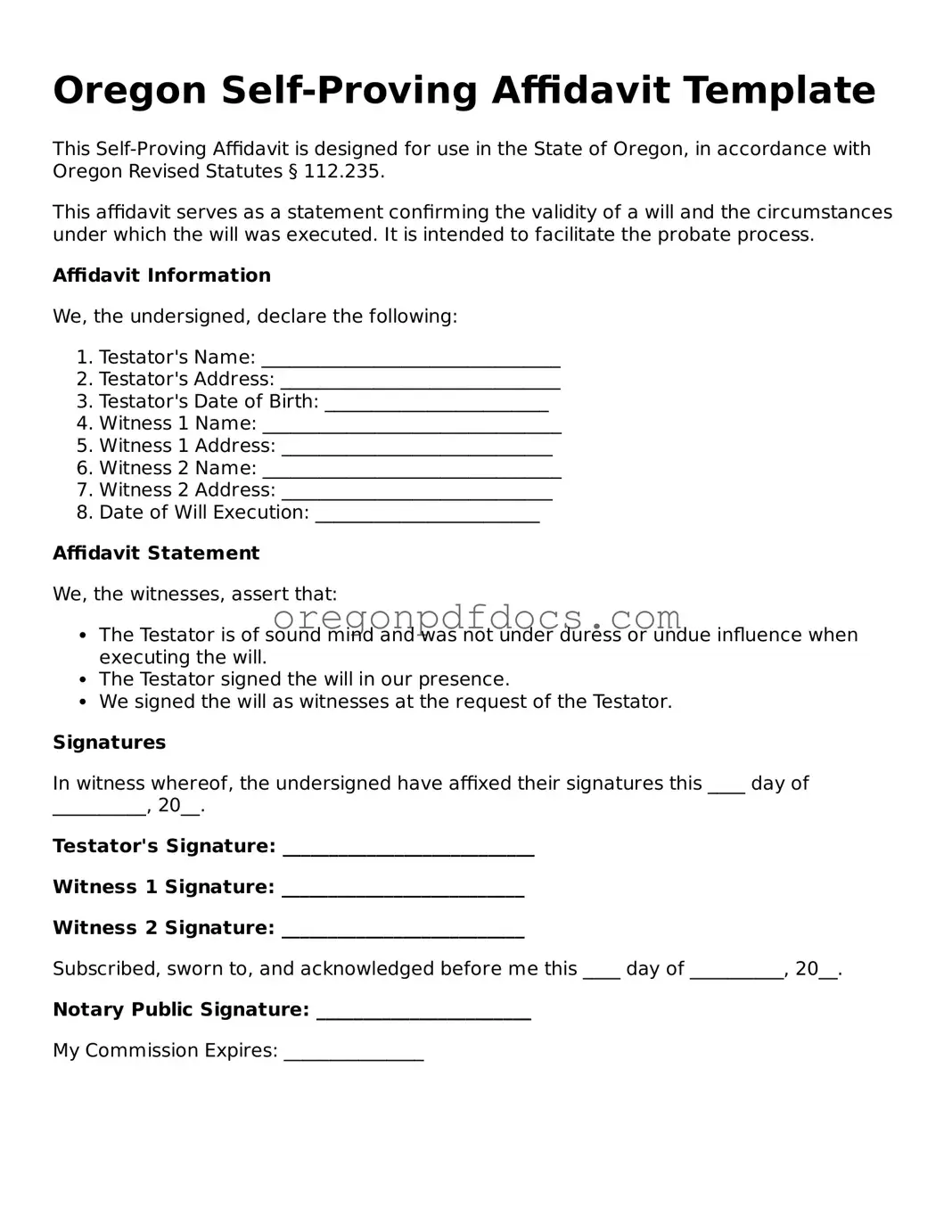Printable Oregon Self-Proving Affidavit Document
The Oregon Self-Proving Affidavit form is a legal document that allows a testator's will to be validated without the need for witnesses to testify in court. This form simplifies the probate process by affirming the authenticity of the will. For those looking to complete this form, click the button below to get started.
Make My Document Online

Printable Oregon Self-Proving Affidavit Document
Make My Document Online

Make My Document Online
or
Get Self-Proving Affidavit PDF Form
One more step to finish this form
Finalize your Self-Proving Affidavit online in a few easy steps.